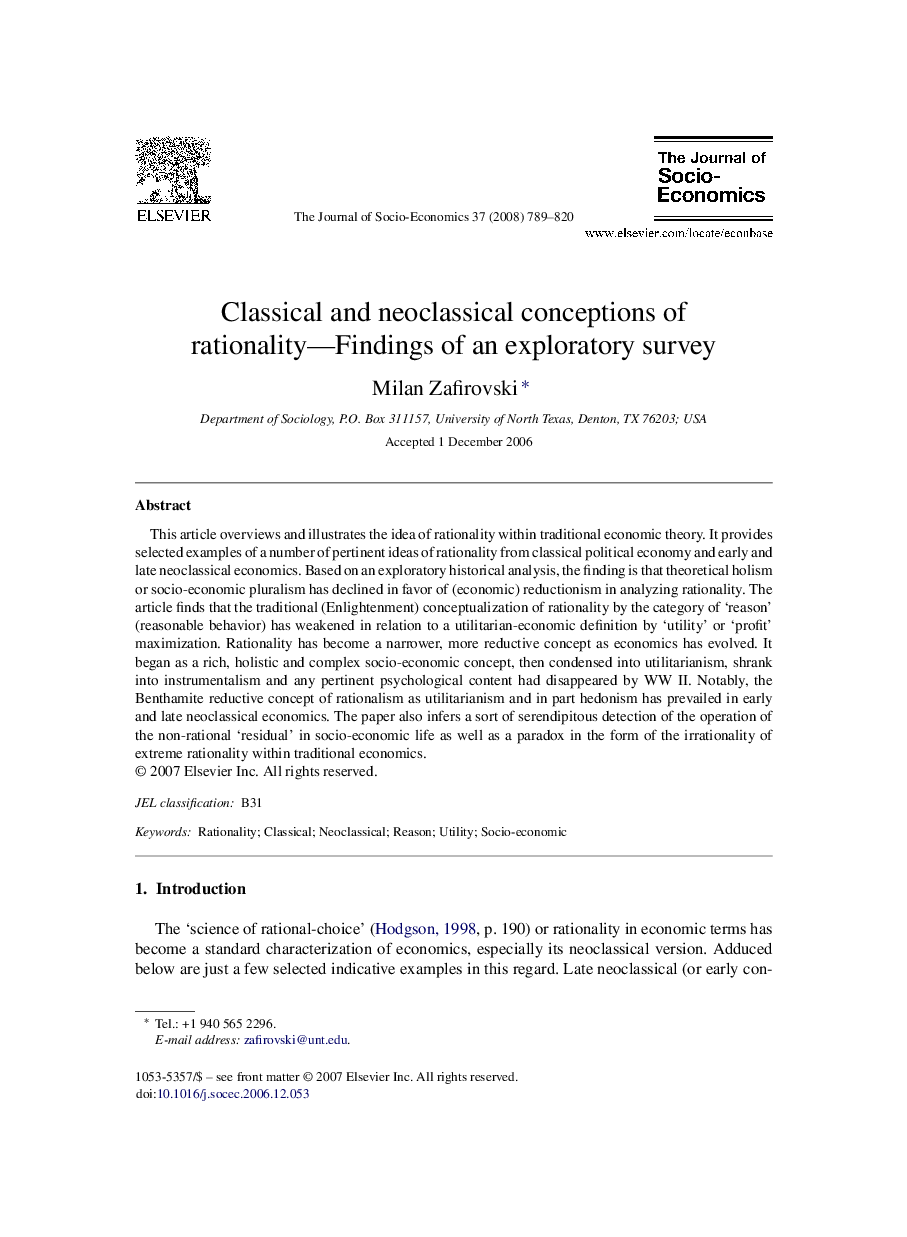| کد مقاله | کد نشریه | سال انتشار | مقاله انگلیسی | نسخه تمام متن |
|---|---|---|---|---|
| 970505 | 1479565 | 2008 | 32 صفحه PDF | دانلود رایگان |

This article overviews and illustrates the idea of rationality within traditional economic theory. It provides selected examples of a number of pertinent ideas of rationality from classical political economy and early and late neoclassical economics. Based on an exploratory historical analysis, the finding is that theoretical holism or socio-economic pluralism has declined in favor of (economic) reductionism in analyzing rationality. The article finds that the traditional (Enlightenment) conceptualization of rationality by the category of ‘reason’ (reasonable behavior) has weakened in relation to a utilitarian-economic definition by ‘utility’ or ‘profit’ maximization. Rationality has become a narrower, more reductive concept as economics has evolved. It began as a rich, holistic and complex socio-economic concept, then condensed into utilitarianism, shrank into instrumentalism and any pertinent psychological content had disappeared by WW II. Notably, the Benthamite reductive concept of rationalism as utilitarianism and in part hedonism has prevailed in early and late neoclassical economics. The paper also infers a sort of serendipitous detection of the operation of the non-rational ‘residual’ in socio-economic life as well as a paradox in the form of the irrationality of extreme rationality within traditional economics.
Journal: The Journal of Socio-Economics - Volume 37, Issue 2, April 2008, Pages 789–820